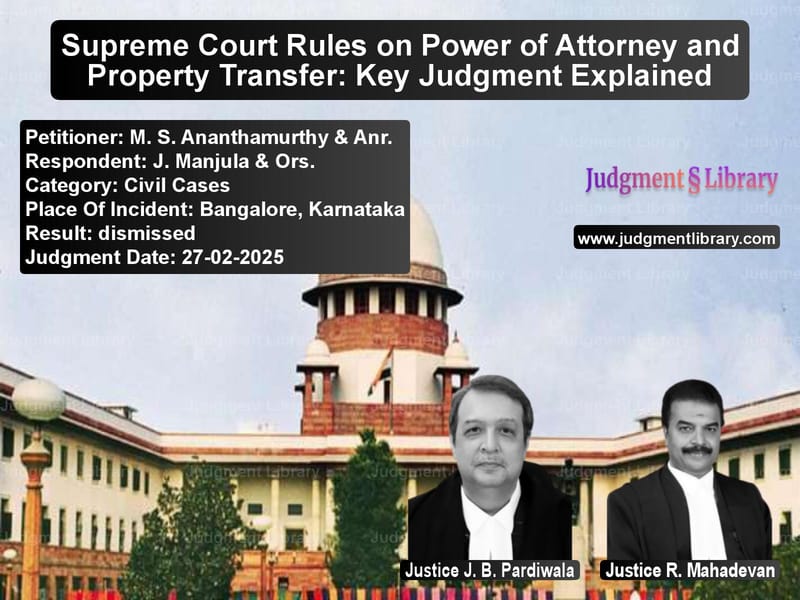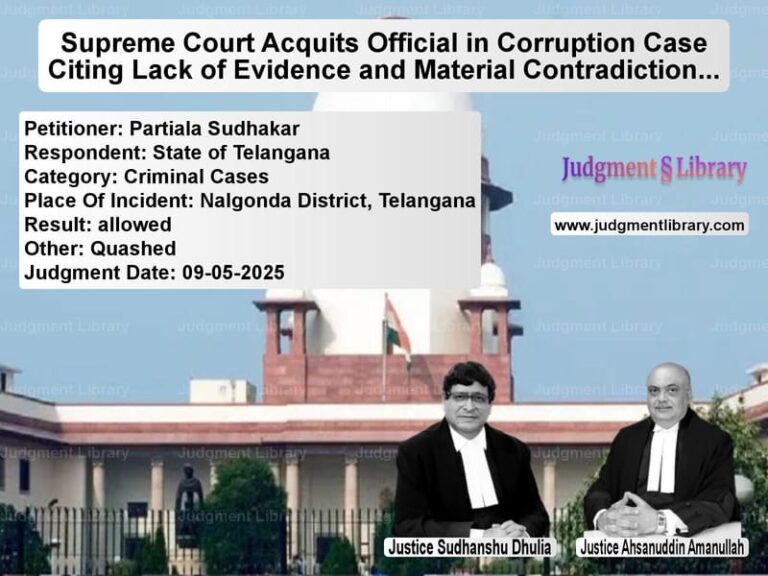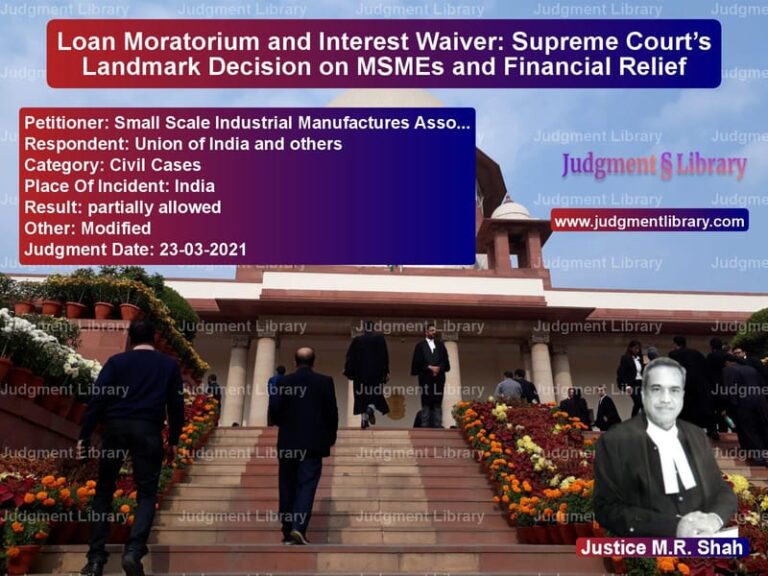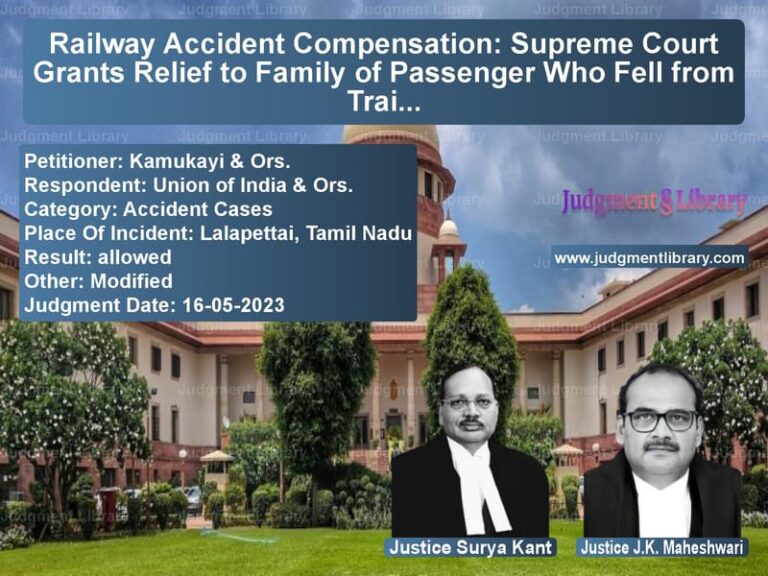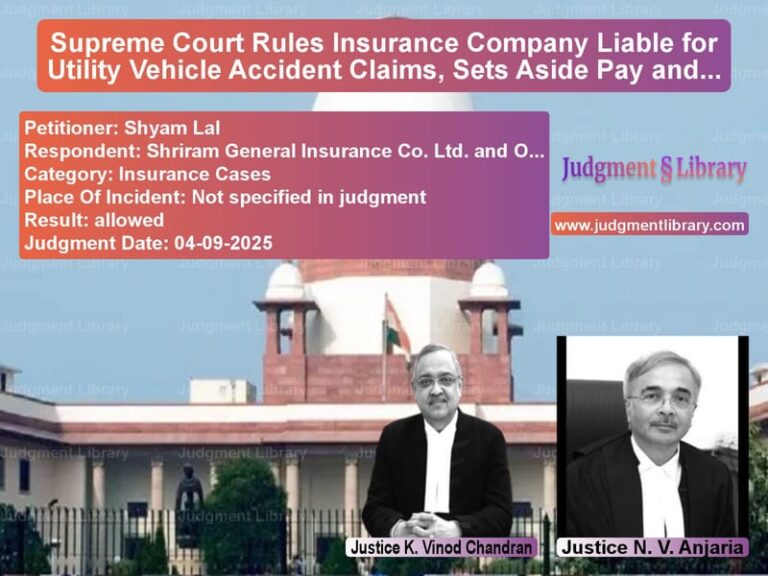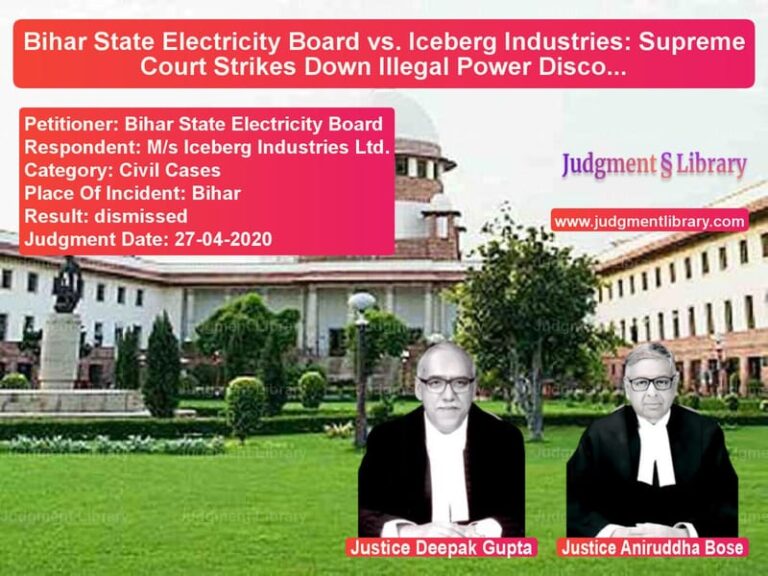Supreme Court Rules on Power of Attorney and Property Transfer: Key Judgment Explained
The Supreme Court of India has delivered a crucial judgment in the case of M. S. Ananthamurthy & Anr. v. J. Manjula & Ors., addressing the legal standing of property transfers executed through a General Power of Attorney (GPA) and agreements to sell. The ruling sets a significant precedent on the interpretation of power of attorney and its limitations in transferring property rights.
Background of the Case
The dispute revolved around ownership of a property in Bangalore. The appellants, claiming ownership, based their case on a General Power of Attorney (GPA) and an Agreement to Sell executed in 1986 by the original owner, Muniyappa, in favor of the appellant’s predecessor, A. Saraswathi. The GPA holder subsequently executed a registered sale deed in 1998 in favor of her son, one of the appellants.
On the other hand, the legal heirs of the original owner sold the same property through a registered sale deed in 2003 to a third party, who later transferred it through a gift deed to the respondent, J. Manjula. When the appellants discovered that the property was occupied by strangers in 2007, a legal battle ensued over ownership rights.
Arguments Presented
Petitioners’ Arguments
The appellants contended:
- The GPA and Agreement to Sell were executed for a valid consideration and should be read together.
- The power of attorney was irrevocable as per Section 202 of the Indian Contract Act since it was “coupled with interest.”
- The sale deed executed by the GPA holder in favor of the appellant’s son in 1998 was valid.
- The subsequent sale by the legal heirs in 2003 was illegal since the property had already been transferred.
- The High Court erred in dismissing their claim and not recognizing their ownership rights.
Respondents’ Arguments
The respondents countered:
- A General Power of Attorney does not transfer ownership; it only grants authority to act on behalf of the principal.
- Since the GPA holder executed the sale deed in 1998 after the death of the original owner in 1997, the sale was invalid.
- According to Suraj Lamp & Industries v. State of Haryana, a GPA cannot be used as a mode of transfer.
- The 2003 registered sale deed and subsequent transactions were legal and valid.
Supreme Court’s Observations and Judgment
The Supreme Court ruled against the appellants, upholding the respondent’s title and possession.
Key observations by the Court:
- “A General Power of Attorney does not by itself create any right, title, or interest in immovable property.“
- “For an agency to be considered irrevocable under Section 202 of the Contract Act, the agent must have an independent interest in the subject matter, which was absent in this case.“
- “The sale deed executed in 1998 by the GPA holder after the principal’s death was void.“
- “Property transfer through GPA and Agreement to Sell does not comply with Section 54 of the Transfer of Property Act and Section 17 of the Registration Act.“
- “The rightful owner was the respondent, as she held a registered gift deed from a valid title holder.“
Final Judgment
The Supreme Court dismissed the appeals, confirming that:
- The sale executed through GPA was invalid.
- The respondent’s possession and ownership were legally sound.
- The appellants had no legal right to claim ownership.
Impact of the Judgment
This ruling reinforces the legal requirement that property ownership can only be transferred through a registered sale deed and not merely through a General Power of Attorney or an Agreement to Sell. Key takeaways from this judgment include:
Read also: https://judgmentlibrary.com/supreme-court-upholds-impleadment-of-legal-heir-in-property-dispute/
- GPA transactions are not valid sales: The ruling aligns with previous judgments that discourage property transfers via GPA to prevent fraudulent transactions.
- Registration of property transactions is crucial: Unregistered property transactions hold no legal standing.
- Power of Attorney is limited in scope: Unless explicitly coupled with an interest as per Section 202 of the Contract Act, a GPA does not confer ownership rights.
This judgment is expected to have far-reaching implications, particularly in real estate transactions where GPAs have been widely misused to evade registration fees and stamp duty.
Petitioner Name: M. S. Ananthamurthy & Anr..Respondent Name: J. Manjula & Ors..Judgment By: Justice J. B. Pardiwala, Justice R. Mahadevan.Place Of Incident: Bangalore, Karnataka.Judgment Date: 27-02-2025.
Don’t miss out on the full details! Download the complete judgment in PDF format below and gain valuable insights instantly!
Download Judgment: m.-s.-ananthamurthy-vs-j.-manjula-&-ors.-supreme-court-of-india-judgment-dated-27-02-2025.pdf
Directly Download Judgment: Directly download this Judgment
See all petitions in Property Disputes
See all petitions in Contract Disputes
See all petitions in Judgment by J.B. Pardiwala
See all petitions in Judgment by R. Mahadevan
See all petitions in dismissed
See all petitions in supreme court of India judgments February 2025
See all petitions in 2025 judgments
See all posts in Civil Cases Category
See all allowed petitions in Civil Cases Category
See all Dismissed petitions in Civil Cases Category
See all partially allowed petitions in Civil Cases Category

